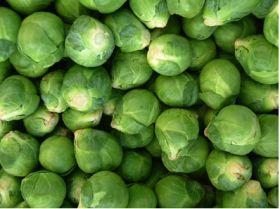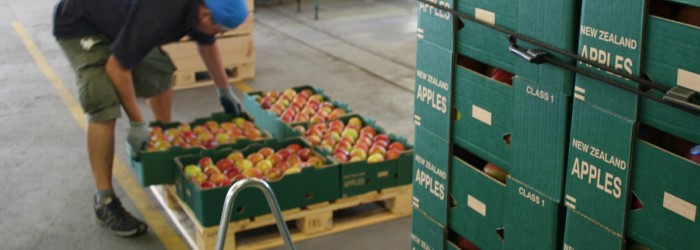food
Calls for new watchdog to collectively monitor public sector food amid fears that UK ‘is not ready’ to offer free school meals
Suppliers to the public sector could benefit from calls to collectively monitor nutrition and catering across the wider public procurement sector, including hospitals, prisons and schools.

Nutritionists and school food campaigners yesterday called for a new watchdog for all public sector food. They met at a forum to discuss implementation of the School Food Plan, which will give schoolchildren aged between five and seven free school lunches, as of 1 September 2014.
Many voiced concerns about the short timeframe to put the new Plan in place, as some schools may struggle with the funding and equipment to provide free school meals before the start of the new term.
Lindsay Graham, school food and health advisor, suggested a better media campaign, an official public health statement and a separate body to monitor public food would make the step easier.
She said this new regulatory body should monitor public sector food, starting with schools, but also incorporating other areas to improve nutrition education and tackle obesity on a wider scale.
Alison Nelson, commissioning manager of the Food for Life Partnership, run by the Soil Association, said the Food for Life Catering Mark is now looking to work with other settings of public food to influence work places in the way they use and prepare food. “This is how to get real systems change. We must get all public procurement sectors in a local authority involved to then drive real change.”
Nelson also emphasised how the Catering Mark, which provides a database to link schools with local suppliers for seasonal or organic produce, boosts the local economy. She said: “For every £1 that goes into a menu, £3 goes back into the local economy.”
Co-ordinator for the Children’s Food Campaign, part of the sustainable farming group Sustain, Malcolm Clark, said public procurement should be about bringing together different strands of healthy eating. “We would like to see a separate body for public sector procurement,” he said.
The new School Food Plan will also ensure cooking and food nutrition is a compulsory part of the national curriculum. However, this was met with concerns that it would only be loosely followed, and could be sacrificed for more ‘academic’ subjects at a head teacher’s discretion.
Many of those quizzed were unaware that they can buy British strawberries in the summer months, and homegrown Brussels sprouts in December.
When it comes to eating ‘in season’, British consumers have little idea when they can buy UK-grown fruit and vegetables, a new survey has revealed.

The survey, carried out by LEAF (Linking Environment and Farming) ahead of this weekend’s Open Farm Sunday event, also found that many consumers didn’t know that British farmers grow foods such as blueberries (63%), sweetcorn (62%), iceberg lettuce (37%), cauliflower (29%), carrots (21%), aubergines (19%), or even apples (19%).
And, despite the fruit’s strong association with Wimbledon, less than six in ten adults knew that they can buy British strawberries in the summer. Some 5,000ha of British strawberries are grown commercially each year, yet one in five people questioned by LEAF didn’t realise that UK farmers grew them at all.
While the exact start date of the season varies depending on the weather, the fact that the British asparagus season runs from April until June has also passed many consumers by, if the LEAF survey is anything to go by.
Only one in three people questioned knew when they could buy British asparagus, with one in ten thinking they could buy it all year round.
Winter produce fared no better, with nearly half of consumers (46 per cent) unaware that in December, you can buy British-produced Brussels sprouts.
It also appears that things are getting worse, with the research showing that those born in the 1990s have significantly less knowledge than previous generations.
LEAF’s survey found that if you were born in the 1990s rather than the 1950s, you were:
· 1.5 times less likely to know British farmers grew strawberries;
· 2.5 times less likely to know you could buy British Brussels sprouts in December;
· Three times less likely to know when to buy British asparagus;
· Twice as likely to not know that iceberg lettuce is grown on British farms;
· And 2.5 times less likely to know you can buy homegrown red cabbage (30% compared with 74%)
Many adults born in the 1990s also thought that Britain commercially grows oranges (16%), bananas (8%), and kiwi fruits and mangoes (both 5%).
Meanwhile, large numbers did not know that the UK grows cauliflower (55%), apples (35%) or carrots (39%).
And, only four in ten of those questioned understood that buying seasonally supported British farmers.
Annabel Shackleton, LEAF’s Open Farm Sunday manager, said: “Alarmingly there appears to be a decline in knowledge about what UK farmers grow and when to buy homegrown produce. A number of initiatives are being run in schools to help improve children’s knowledge but it seems adults could do with some lessons too.
“One in ten people questioned admitted to having been left embarrassed by asking for something that wasn’t in season, but much greater numbers than that have a problem understanding seasonality. The agricultural industry is worth billions to the British economy, so it is important that we know what homegrown produce to look out for when shopping.
“Talking to a farmer is a great way to discover more about your food, so we’d encourage as many people as possible to visit their local farm on Open Farm Sunday, 8 June, where nearly 400 farms of all types and sizes will be opening their gates for visitors to celebrate British farming and food.”
LEAF is an organisation dedicated to delivering more sustainable food and farming, and has run Open Farm Sunday since 2006.
Its survey of 2,000 adults was carried out by One Poll during May 2014.
New Zealand is now producing more fruit than it did a decade ago, despite planted area contracting by around a quarter

New Zealand is expected to ship around 310,000 tonnes of apples this season – a pleasantly surprising result for the country’s growers during what is an off year in their trees’ biennial bearing cycle.
Last year’s full crop yielded a 12% increase in shipments overseas to 324,684 tonnes, according to industry body Pipfruit NZ, and this year’s export volumes had been expected to fall back in line with a downturn in production to around 480,500 tonnes.
However, exporters had already expressed confidence at the start of the 2014 campaign about the prospects for NZ apples, mainly based on the anticipated demand for smaller-sized fruit in key markets such as the UK and the fact that frosts in Chile and hail in South Africa would mean availability of those sizes was under pressure from the start of the season.
New Zealand’s apple export trade has also been aided by a further increase in demand from the developing Asian market, where volumes sold to China and Hong Kong increased from 15,268 tonnes in 2012 to 21,443 tonnes last year, despite a temporary suspension of shipments in September.
The country’s top five export markets in 2013 were the UK (44,312 tonnes), US (), Netherlands (), Thailand () and Belgium (). A significant proportion of shipments to the Netherlands and Belgium were re-routed to other markets across Europe, with demand boosted by a smaller Northern Hemisphere crop and, again, damage to crops in Chile and South Africa.
Thailand, meanwhile, has emerged as one of the shining examples of successful market diversification: in just five years, it has gone from importing less than 8,000 tonnes of NZ apples to almost 28,000 tonnes in 2013.
Similar dramatic increases have been observed in the UAE, which imported 18,404 tonnes in 2013 – four times the 2008 figure; in India, up from 4,966 tonnes to 14,330 tonnes during the same period; and in Vietnam, now taking around 3,000-4,000 tonnes compared with just 750 five years before.
New Zealand also appears to be reaping the rewards of a sizeable increase in productivity as the sector has consolidated in the post-deregulation era.
Figures released by Pipfruit NZ show that, while planted area for apples has declined by nearly 25% since 2005, production of export-grade fruit is at a similar, if not higher, level now to that seen a decade ago.
Former chef and ex-manager at 2 Sisters Food Group, Bryan Nelson, will take over accounts for Freshtime’s largest retail customers

Growing salad and vegetable company Freshtime has boosted its management team with the addition of former chef Bryan Nelson.
Nelson, who has been working in the food industry for 20 years, will handle Freshtime’s three largest retail customers in his role of national account manager.
Having opened a restaurant in Aberdeen, Nelson has also previously worked as commercial manager at Young’s Seafood and new business manager at 2 Sisters Food Group.
“This business is ready to expand and I’m looking forward to being part of it,” he said. “Our managing director Mark Newton was a huge influence on my decision to come here. I knew the company before I joined; Mark has told me about his plans for the future and it’s ready to take off.”
Newton confirmed that the company is in the process of building a strong team to take Freshtime to the next level. “Bryan has extensive experience and in-depth knowledge of the food industry and will be a real asset to the company,” he said.
Freshtime employs over 300 people and supplies prepared vegetables and salads to multiple retailers and food service operators.
At Henderson Brown we recruit extensively within the Food Manufacturing, Fresh Produce, Horticulture, Engineering and Manufacturing sectors. We have a wealth of industry experience in each sector with our specialists recruiting from graduate to board level. We like to meet with both our clients as well as our candidates to fully understand their personalities so we can match the ideal candidates to the role and the company.